A couple days ago, my natural gas forced air furnace went out. The limit switch was tripping and once my CO detectors went off. Reading 36 ppm at the highest. I have left the furnace off while I figure out the next steps.
Furnace specs:
Model year 2009, 60,000 Btu/hr, 92 AFUE Bryant (Carrier) furnace. Known issue with cracking/leaking secondary HX and carries a 20 year parts and labor warranty. Primary HX carries a 20 year parts only.
House specs:
Build in 2009, 2400 square feet, 2x6 16 OC walls, cheap double pane vinyl windows. Twin Cities Minnesota.
Here is my dilema:
I don't want to put a single penny more into a furnace that is already 13 years old. The service call cost (~$150) and diagnosis fee are unavoidable even if it turns out to be the secondary HX which is fully covered. If the issue is the primary HX, then we are looking at 3 hrs+ labor at ~$200/hr.
Long-term goal:
I am working towards a goal of electrifying my house away from carbon intensive sources (slowly). As the current appliances break, I am replacing with electric. The natural gas water heater started leaking so I installed a HPWH, happy with it so far. The dryer is likely next. I would like the long term heat source to be a ground source heat pump. My parents have had one for over 24 years and have been very happy with the performance and cost.
Short/medium term plan:
I currently have radiant in-floor heating on my 1st floor which is very comfortable and we would like to expand our sources of hydronic heat. This is heated by a T-H3J-DV-N Indoor Tankless High Efficiency Condensing Water Heater. Rather than purchase a new gas furnace or fix our current, I would like to expand the number of zones on the hydronic system and utilize BeaconMorris or Bunderus radiant panels. These would be in the basement and upstairs bedrooms. Cooling will remain forced air.
The Question?
Looking for advice and input on my plan.
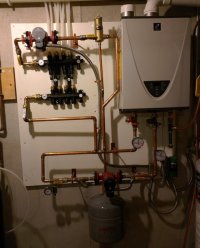
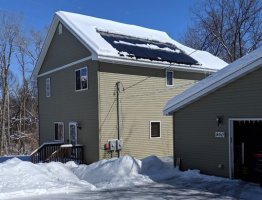
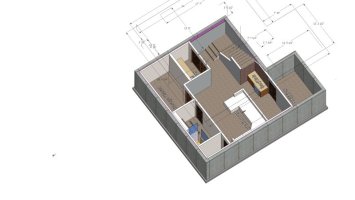
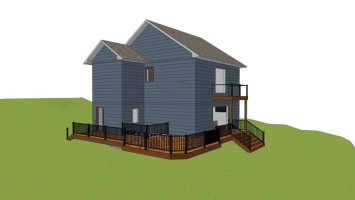
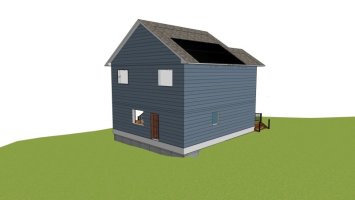
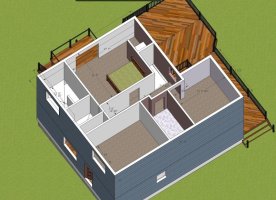
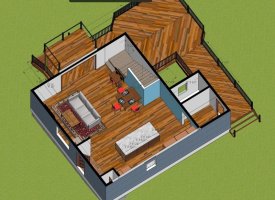
Furnace specs:
Model year 2009, 60,000 Btu/hr, 92 AFUE Bryant (Carrier) furnace. Known issue with cracking/leaking secondary HX and carries a 20 year parts and labor warranty. Primary HX carries a 20 year parts only.
House specs:
Build in 2009, 2400 square feet, 2x6 16 OC walls, cheap double pane vinyl windows. Twin Cities Minnesota.
Here is my dilema:
I don't want to put a single penny more into a furnace that is already 13 years old. The service call cost (~$150) and diagnosis fee are unavoidable even if it turns out to be the secondary HX which is fully covered. If the issue is the primary HX, then we are looking at 3 hrs+ labor at ~$200/hr.
Long-term goal:
I am working towards a goal of electrifying my house away from carbon intensive sources (slowly). As the current appliances break, I am replacing with electric. The natural gas water heater started leaking so I installed a HPWH, happy with it so far. The dryer is likely next. I would like the long term heat source to be a ground source heat pump. My parents have had one for over 24 years and have been very happy with the performance and cost.
Short/medium term plan:
I currently have radiant in-floor heating on my 1st floor which is very comfortable and we would like to expand our sources of hydronic heat. This is heated by a T-H3J-DV-N Indoor Tankless High Efficiency Condensing Water Heater. Rather than purchase a new gas furnace or fix our current, I would like to expand the number of zones on the hydronic system and utilize BeaconMorris or Bunderus radiant panels. These would be in the basement and upstairs bedrooms. Cooling will remain forced air.
The Question?
Looking for advice and input on my plan.







